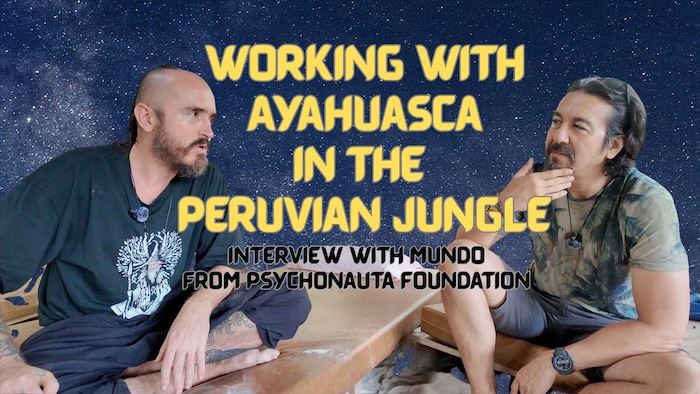Mystical thought and language have long captivated the human imagination. They offer pathways to profound spiritual experiences and insights. However, the very nature of mystical expression—ambiguous, metaphorical, and often paradoxical—can also serve as a tool for plausible deniability, particularly in manipulative contexts. This article explores how plausible deniability manifests in mystical thought and language, and its psychological implications.
Plausible deniability: The ability of individuals to deny knowledge of or responsibility for actions due to a lack of evidence proving their involvement, often through the use of ambiguous or indirect statements.
Merriam-Webster
Understanding Mystical Language
Mystical language is characterized by its use of symbols, metaphors, and paradoxes to describe experiences often deemed ineffable—beyond the capacity of ordinary language to convey. This intrinsic ambiguity allows for multiple interpretations, enriching spiritual practice but also creating opportunities for manipulation.
- Ambiguity and Interpretation
Mystical statements such as “finding the light within” or “transcending the self” are inherently open to interpretation. This flexibility can be spiritually enriching, allowing individuals to find personal meaning. However, it also provides leaders or gurus with a means to deflect criticism and avoid accountability.
- Example: A leader might suggest a drastic action as a metaphor for personal transformation. If followers take it literally and suffer consequences, the leader can claim the message was misunderstood and was never meant to be taken literally.
- Paradoxes and Contradictions
Mystical teachings often employ paradoxes that defy straightforward interpretation. These contradictions can serve as a defense mechanism, enabling leaders to evade responsibility by shifting interpretations as needed.
- Example: A guru who states, “The path to enlightenment is both through action and inaction,” can later argue that any harmful actions taken by followers were misinterpretations, as the teaching also emphasized inaction.
- Denial of Literal Interpretation
Mystical teachings frequently stress the ineffable nature of truth and discourage literal interpretation. This can be leveraged to deny specific allegations.
- Example: If a leader’s vague prediction about a disaster doesn’t come true, they can claim it was intended as a symbolic warning about spiritual unpreparedness rather than a literal forecast.
Plausible Deniability in Manipulative Contexts
In the hands of manipulative leaders, plausible deniability becomes a powerful tool to maintain control while avoiding responsibility. This tactic is particularly prevalent in cult-like environments, where leaders use ambiguous language to influence followers indirectly.
- Creating an Us-Versus-Them Mentality
Leaders foster distrust of outsiders to create a strong in-group bond. This mentality makes followers more loyal and obedient, as they feel under threat from the outside world.
- Example: Leaders may claim that only the group understands the truth and that outsiders are trying to undermine them, fostering a sense of unity and dependence on the leader for protection.
- Isolation from Friends and Family
Encouraging followers to distrust even their close family and friends who are not part of the group leads to social isolation, making followers more reliant on the leader and the group.
- Example: A guru might suggest that family members or friends who question the group’s teachings are trying to lead followers astray, encouraging them to cut ties with anyone outside the group.
- Discrediting Dissenting Voices
Leaders label dissenting opinions within the group as dangerous or untrustworthy, ensuring that followers only listen to the leader’s teachings and not to critical or alternative viewpoints.
- Example: Any member who expresses doubt or questions the leader’s decisions can be branded as untrustworthy, thus silencing internal criticism and maintaining control over the narrative.
Real-Life Examples
- Heaven’s Gate: Marshall Applewhite used a complex blend of UFO beliefs and Christian eschatology, creating an ambiguous doctrine. When followers interpreted their teachings in extreme ways, the leaders maintained plausible deniability by framing their messages as symbolic rather than literal instructions. This led to a tragic mass suicide.
- Rajneesh Movement (Osho): Osho’s teachings included many paradoxes and open-ended statements that could be interpreted in various ways. This ambiguity allowed him to distance himself from illegal activities conducted by his followers, claiming they misunderstood his teachings.
- Scientology: The Church of Scientology uses complex jargon and layered teachings that often contradict each other, allowing leaders to claim misinterpretation or lack of understanding by critics or disillusioned members.
Psychological Implications
The use of plausible deniability in mystical thought and language highlights the psychological vulnerability of individuals seeking spiritual fulfillment. The desire for deeper meaning and connection can make people susceptible to manipulation, particularly when leaders exploit the ambiguous nature of mystical teachings.
Cognitive Dissonance: Followers experiencing conflicting teachings may suffer from cognitive dissonance. This psychological discomfort, caused by holding contradictory beliefs, can increase dependency on the leader for clarification and resolution.
Dependency and Control: The strategic use of ambiguity fosters dependency on the leader. Followers look to them to interpret complex and paradoxical teachings, enhancing the leader’s control over the group.
Isolation and Alienation: Encouraging distrust of outsiders isolates followers from external support systems. This makes them more reliant on the group and leader, leading to emotional and psychological distress.
Conclusion
While mystical thought and language can provide profound spiritual insights, they also carry the risk of manipulation through plausible deniability. Understanding the psychological tactics used by manipulative leaders is crucial for protecting individuals from exploitation. By fostering critical thinking and encouraging open dialogue, we can help individuals navigate their spiritual journeys with discernment and awareness.
Related
Discover more from TRANSCENDENT PSYCHOLOGY
Subscribe to get the latest posts sent to your email.







